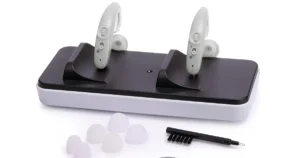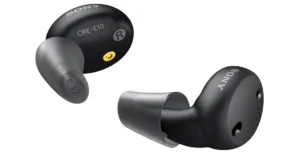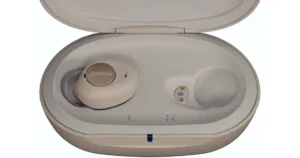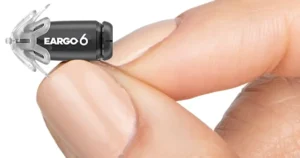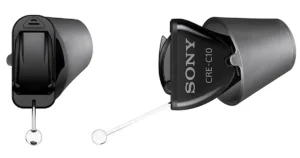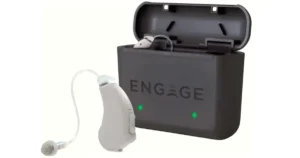Over-The-Counter Hearing Aids
Find Affordable Hearing Solutions Without a Prescription
Why Choose Over-The-Counter Hearing Aids?
Over-the-counter (OTC) hearing aids are becoming increasingly popular among people with hearing loss. They are an affordable and accessible option for people who may not have access to traditional hearing aids or who may not want to go through the process of seeing a hearing healthcare professional.
What are the benefits of OTC hearing aids?
- Cost-effective: OTC hearing aids are typically less expensive than traditional hearing aids, making them an affordable option for people who may not be able to afford the high cost of traditional hearing aids.
- Convenience: OTC hearing aids can be purchased without a prescription or a visit to a hearing healthcare professional. They are available for purchase online or in stores, making them a convenient option for people who may not have access to a hearing healthcare professional.
- Flexibility: OTC hearing aids come in a variety of styles, sizes, and features, allowing people to choose a device that best meets their needs and preferences.
- Accessibility: OTC hearing aids can be a good option for people who live in rural areas or who may not have access to hearing healthcare professionals.
- Ease of Use: OTC hearing aids are designed to be easy to use, with simple controls and minimal adjustments needed.
While OTC hearing aids may offer several benefits, it is important to keep in mind that they may not be appropriate for everyone with hearing loss. For people with more complex hearing loss, traditional hearing aids may be a better option. Additionally, traditional hearing aids are typically custom-fit to an individual's ear, which can result in a more comfortable and effective fit.
It is always a good idea to consult with a hearing healthcare professional to determine the best course of action for your specific hearing needs. They can help you determine if OTC hearing aids are appropriate for you, or if traditional hearing aids would be a better fit.
Expert Reviews of Over-The-Counter Hearing Aids
Get In-Depth Analysis from Our Hearing Aid Experts
Clari Hearing Aids: Revolutionizing Hearing Assistance
By Best Hearing Aids 2023 |
RCA OTC Hearing Aids Review
By Best Hearing Aids Staff |
Sony CRE-E10 Hearing Aid Review
By Best Hearing Aids Staff |
Product Review: Jabra Enhance Plus Self-Fitting OTC Rechargeable Hearing Aids
By Best Hearing Aids Staff |
EARGO 6 Self-Fitting OTC Adult Hearing Aid Review
By Best Hearing Aids Staff |
Sony CRE-C10 Self-fitting OTC Hearing Aid Review
By Best Hearing Aids 2023 |
Lucid Hearing Engage Hearing Aids Review
By Best Hearing Aids 2023 |
Sontro OTC Hearing Aids Review
By Best Hearing Aids Staff |
Bose Lexie B2 Review
By Best Hearing Aids 2023 |
Jabra Enhance High-Tech Hearing Aids Review
By Best Hearing Aids Staff |
Frequently Asked Questions
Get Answers to Your Over-The-Counter Hearing Aid Questions
OTC hearing aids are devices that can be purchased directly from retailers or online without a prescription. These devices are designed to provide amplification for people with mild to moderate hearing loss.
OTC hearing aids may be a good option if you have mild to moderate hearing loss and are looking for an affordable, convenient solution. However, if you have severe hearing loss or other underlying medical conditions, it's important to consult with a healthcare professional before using an OTC device.
Yes, OTC hearing aids are regulated by the FDA and must meet specific safety and performance standards.
OTC hearing aids can range in price from around $20 to several hundred dollars. The cost will depend on the specific device, as well as any additional features or accessories.
There are many factors to consider when choosing an OTC hearing aid, including your level of hearing loss, lifestyle, budget, and personal preferences. It's important to do your research and read reviews from other users to find a device that meets your specific needs.
Most retailers and online sellers offer a return policy for OTC hearing aids, but it's important to check the terms and conditions before making a purchase.
OTC hearing aids should be cleaned regularly and may require replacement parts, such as batteries or ear tips. It's important to follow the manufacturer's instructions for care and maintenance to ensure optimal performance.
OTC hearing aids are not typically covered by insurance, but some flexible spending accounts or health savings accounts may allow for the purchase of these devices with pre-tax funds. It's important to check with your insurance provider or benefits administrator to see what options are available.

